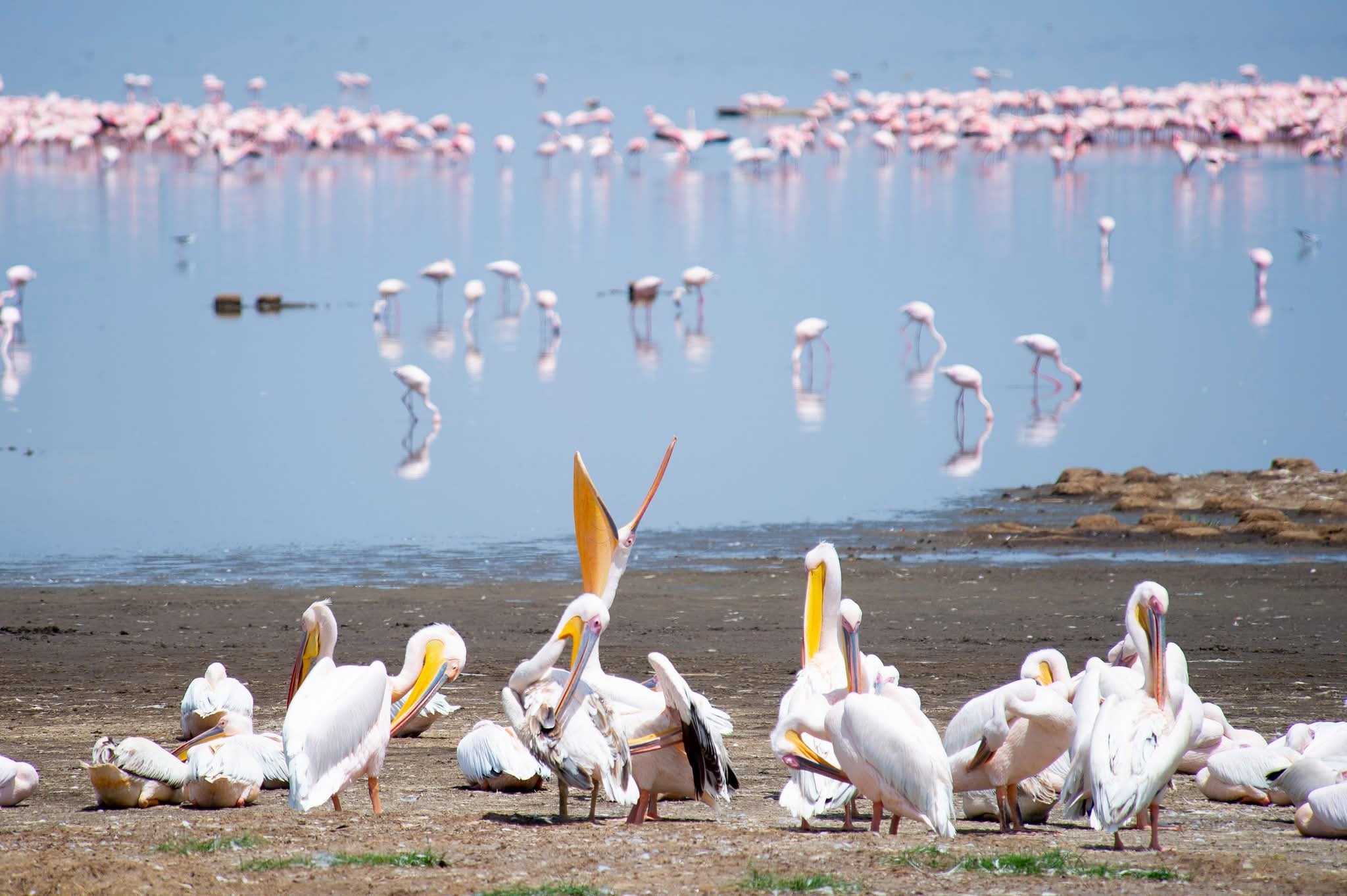

Shimmering beneath the Rift Valley sky, Lake Nakuru rests
quietly on the valley floor, a mirror of clouds and light, ringed by acacia
woodlands and bushy grasslands.
It is the kind of landscape that calls to travelers, luring
them with its raw beauty and rewarding them with sights they will not forget.
Kenya Wildlife Service (KWS) describes the lake as “a ball
of beautiful sights and waiting to be explored.”
Once celebrated worldwide for its sweeping pink shorelines
painted by flocks of lesser flamingos, the park has since grown into a
sanctuary where diversity flourishes, in birds, mammals, landscapes and
stories.
A paradise painted with wings
Step into Lake Nakuru National Park and the first thing you
notice is the air, alive with wings.
The lake and its surrounding habitats host more than 450
species of birds, from water birds skimming the ripples to migratory flocks
that arrive with the seasons.
KWS describes the park as an ornithological paradise,
attracting leading scientists and filmmakers.
Here, even casual birdwatchers are drawn into the magic, scanning trees, shorelines and skies for flashes of colour or calls carried on the wind.

KWS
Kenya’s first rhino sanctuary
But birds are just the beginning. The park holds a proud
place in conservation history as Kenya’s first rhino sanctuary.
Today, it hosts one of the largest concentrations of black
rhinos in the country, while white rhinos have also been successfully
introduced.
Visitors may find them grazing along the plains or resting
in the shade, a reminder of how far Kenya has come in safeguarding endangered
species.
Life on the wild side
Beyond rhinos, the park teems with wildlife.
Herds of impalas leap across the grasslands, while giraffes,
zebras, buffaloes and hippos share the space with shy bushbuck and mountain
reedbuck.
Predators roam here too including lions, leopards, hyenas
and serval cats weaving their stories into the park’s tapestry.
For primate lovers, troops of olive baboons are a familiar
sight, while the elusive black-faced vervet and graceful colobus monkeys move
quietly in the canopy.
Along the escarpments, rock hyraxes and klipspringers find
safety among the rocks and crevices.
Views that stay with you
If the wildlife doesn’t take your breath away, the views
will. From Baboon Cliff, Lion Hill and Out of Africa Hill, the park
unfolds in sweeping vistas of water, grassland and sky.
KWS highlights these as the park’s prime vantage points,
perfect for soaking in sunsets or simply breathing in the beauty of the Rift
Valley.
And when the day slows, there are places to pause: picnic
sites at Baboon Cliff, Out of Africa Hill, and near the Makalia Waterfalls.
Each offers a quiet corner of nature for families, couples,
or solo wanderers to enjoy.
Something for everyone
Game drives. Bird watching. Scenic picnics. Camping under
the stars. Whatever your rhythm, Lake Nakuru has something waiting.
It is a place where you can chase the thrill of spotting a
leopard one moment and linger in stillness watching pelicans the next.
KWS notes that Lake Nakuru is a uniquely rewarding
game-viewing destination, a sanctuary for endangered rhinos and a beacon for
birdlife.
Its scenic beauty and ecological diversity make it one of
Kenya’s treasures.
The call of Nakuru
Perhaps that is the essence of Lake Nakuru.
It is not just a national park, it is a haven where every
turn reveals something unexpected.
A burst of colour from a flamingo’s wing, a lion’s roar
echoing through the acacia, or the serenity of the lake stretching endlessly
under the Rift Valley sky.
For anyone seeking to be moved by nature, Lake Nakuru is waiting.

















